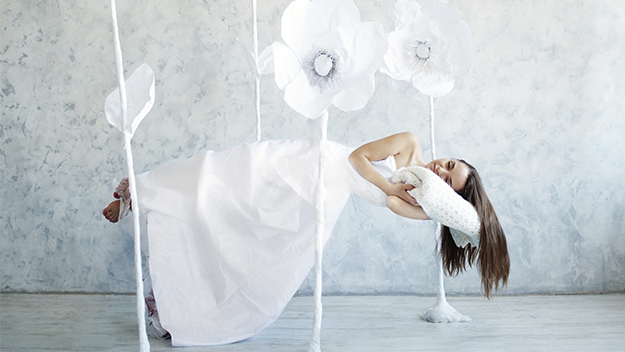Sonia, 46, shares her real life story
My son grumbled as I gently shook his shoulders.
“Good morning, sleepyhead,” I said to Ethan, 10. “Time for school.”
“I’m too tired,” he mumbled. “I can’t get up.”
Not this again. I opened his curtains and pulled back his doona.
Ethan was never the kind of kid who jumped out of bed but it was becoming increasingly harder to wake him each morning.

Ethan asleep in the doctor’s waiting room.
Maybe he’s hitting those teenage years, I thought. His older brother, Bevan, 14, had been the same.
But as the weeks carried on, Ethan continued to feel more tired and struggled to get out of bed. One weekend I tried to wake him for soccer but he moaned so much I gave up trying.
It was bizarre! He loved training twice a week and never missed his weekend games.
“Have you lost interest?” I asked gently.
“I want to play,” he said. “But I’m too exhausted.”
Realising this might be more than just hormones, I took him to our GP.
After listening to his symptoms, the doctor sighed. “I think Ethan’s just avoiding school,” he said.
I went home deflated. I knew that most kids his age tried to get out of school but that wasn’t Ethan.
He understood how important education was. I was starting to believe there really was something wrong with him.

Ethan loved playing soccer.
We went around to a few different medical centres and had some blood tests but they all came back normal. Poor kid, I thought as I ushered him out the door each day, his eyes still glazed over.
As time passed Ethan’s exhaustion grew worse than ever. He’d wake from a 16-hour snooze and after going to the toilet and eating a piece of toast, he’d be ready for bed again.
One weekend he slept for 26 hours straight and could barely keep his eyes open afterwards.
Worst of all, family and friends never really believed there was anything wrong with him. I heard relatives whispering about how lazy he was.
“I bet he stays up all night playing video games,” one family member said.
It broke my heart to hear people being so judgemental, especially since Ethan himself was devastated that he couldn’t stay awake. He was sleeping his way through some of the best years of his life!
Whenever we went out as a family, whether it was to a restaurant or the local bowling alley, he’d always end up dozing off. We’d even been to a few specialists who’d never actually seen him while he was awake.
“I’m so embarrassed but I can’t keep my eyes open,” he mumbled one day in a doctor’s waiting room.
Lying down on the carpeted floor, he fell asleep right away. For months I forced him to keep going to school, but he couldn’t get through a class without drifting off.
At the end of Year Eight I pulled him out so we could focus all of our attention on getting a diagnosis. We were sent to an adolescent centre for kids with conditions that were difficult to diagnose and for once the doctor took us seriously.
“I think this might be narcolepsy,” she said.
She explained that it was a chronic disorder affecting the part of the brain that controls sleep. People who suffer from it can’t control when they doze off and don’t feel restored when they wake, no matter how long they’ve slept for.
Excited that we might finally have some answers, I took Ethan to a clinic for an overnight sleep test. Doctors monitored his sleep for 20 minutes then woke him for an hour and 40 minutes.
They did this five times to determine how quickly he fell asleep and entered the REM phase, the stage of sleep where people dream. It was torture for the poor thing.

Ethan would fall asleep for hours on end.
After such little sleep, it was a struggle to keep him awake. He was so exhausted he couldn’t walk or talk, so I pushed him in a wheelchair.
“Stay awake, babe,” I urged, nudging him constantly.
When it was all done, he dozed off in the car on the way home and slept right into the next day. Six weeks later we got the results.
“Ethan does have narcolepsy,” our doctor said.
Unlike most people, who go in and out of the REM stage when they sleep, Ethan had been asleep and in the REM stage before his head had even hit the pillow.
Because Ethan’s mind was constantly active during the REM stage, he never felt refreshed after sleeping. Instead he woke feeling just as tired as he’d been before – he was stuck in a cycle of constant exhaustion.
Although it was serious and there wasn’t a cure, I couldn’t help but feel relieved that finally after four years, we had an official diagnosis. We hadn’t been going crazy after all!

Ethan and I now.
Ethan was prescribed drugs to help keep him awake and regulate his sleeping pattern, but they didn’t make much of a difference.
A doctor then recommended another medication, sodium oxybate, which would help Ethan to reach that deep sleep stage, making his dozes more restful and restorative. He took a dose before bed and the next morning, he woke up easily.
“I feel like I actually slept,” he beamed when he walked into the kitchen. “I can’t remember ever feeling like this.”
Tears fell down my cheeks as I wrapped Ethan in a hug. I felt like I finally had my son back!
Now 17, Ethan is back at school and even though it exhausts him he loves it.
Narcolepsy has been one hell of a battle but I’m so proud of how brave Ethan’s been through it all. Now we have a diagnosis, we’ll do everything we can to make sure he doesn’t go through life with his eyes shut.

